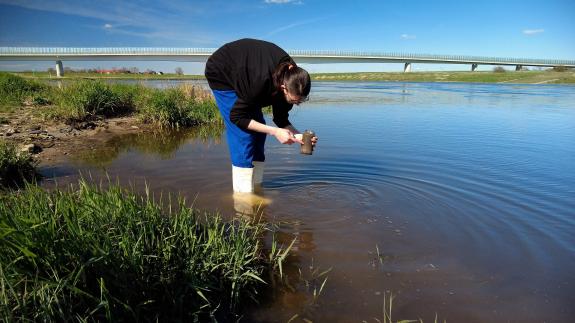Nature is home to a wealth of different bacteria - round, star-shaped, rod-shaped and so on. Many of these tiny organisms are mainly known because they make us humans ill. However, most bacteria in nature are not pathogens at all, but have unique abilities that we humans can make good use of in our everyday lives or in medicine! There are even bacteria that can sense the earth's magnetic field and move along it. Scientists refer to this form of targeted movement as magnetotaxis - which is why we affectionately call these bacteria "magnetos".
Just as we humans have developed specialized organs, such as eyes or ears, to perceive our environment, "magnetos" have tiny crystals of magnetite or greigite inside their cells. With these organelles - known as magnetosomes - they can "sense" the earth's magnetic field. Lined up in chains, they function like a compass needle and help the cell to align itself with the earth's magnetic field. However, in order to be able to move along the magnetic field, these bacteria must have a kind of drive, similar to a propeller at the end of a boat. This bacterial propeller is called a flagellum and its rotation generates a thrust that moves the "magnetos" forward, along the Earth's magnetic field or towards a magnet. Although scientists have already discovered a lot about the "magnetos", hardly any species are known so far; however, many are still suspected to exist in nature. In order to learn more about the diversity of "magnetos" and their abilities, many citizen scientists across Germany went in search of "magnetos" as part of the "Microbe hunters wanted!" project in the "Science Year 2022 In demand!". The participants collected sediment samples in lakes, rivers, ponds and many other places, carried out small experiments and sent the samples to us in Jena. In our laboratory, we lovingly looked after these samples and tried to enrich and isolate "magnetos".
You can see the results of the project during the "Long Night of Science 2024". Young and old can learn more about these special microorganisms and their ability - magnetotaxis - in a fun way. You can also hunt for "magnetos" yourself in Jena sediment samples using a magnet and microscopes.
Suitable for adults and children aged 3 and over.

